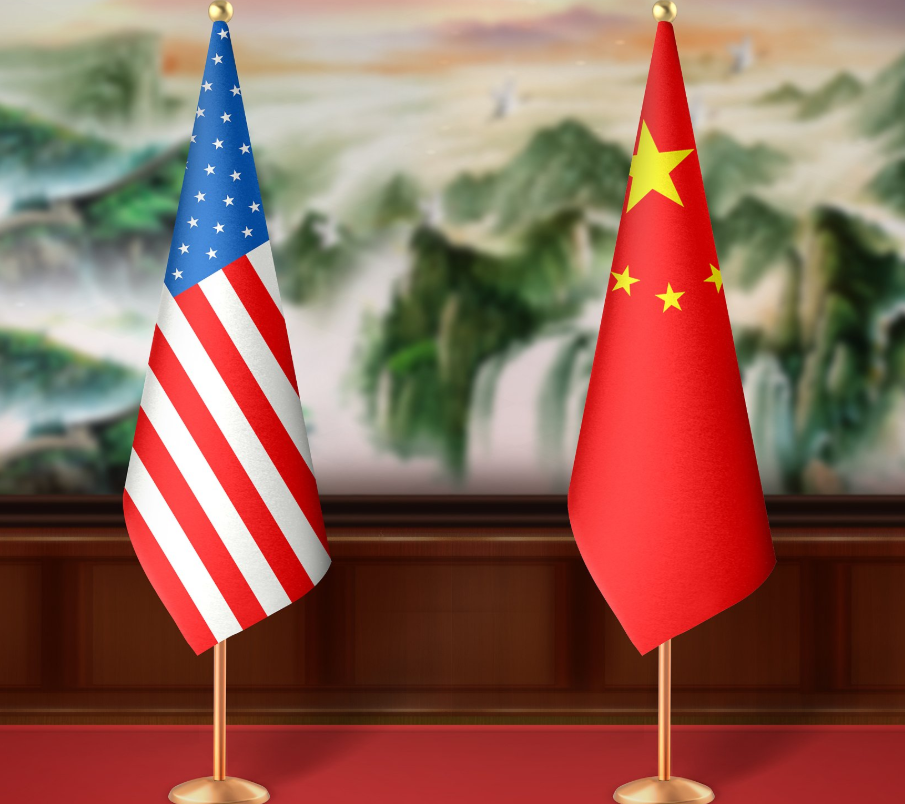President Trump Likely to Announce Trade Deal With China:An overview of recent progress in U.S.–China trade talks, President Trump’s new agreements and potential India deal, and the race to meet—or extend—the looming July 9 tariff deadline, with European leaders weighing in on a balanced U.S.–EU pact.
President Trump Likely to Announce Trade Deal With China
Trade tensions between the United States and China may finally be easing as signs of progress emerge from ongoing negotiations. According to U.S. officials, both sides have reached a “critical understanding” that could significantly expedite China’s rare earth shipments to the U.S. while also breathing new life into the stalled Geneva agreement.
This encouraging development follows a series of high-level diplomatic discussions, first held in Geneva last month and more recently in London. These talks have helped both nations move past some of the earlier sticking points, such as steep retaliatory tariffs. However, disputes around non-tariff barriers and rare earth export licenses had previously reignited tensions between the two powers.
During a recent event promoting his proposed “one big beautiful bill” budget plan, U.S. President Donald Trump announced a major breakthrough in the trade negotiations. He declared that a deal with China had been signed and hinted at the possibility of a similar agreement with India. “We just signed with China yesterday,” Trump told the crowd. “We have everybody. We’re not going to make deals with everybody. Some we’re just going to send them a letter saying, ‘Thank you very much, you’re going to pay 25, 35, 45%.’ That’s the easy way to do it.”
Trump added that while his advisors prefer negotiating trade deals, he personally believes that imposing tariffs is sometimes more effective. Nonetheless, he emphasized that many deals are now in progress and one with India could be on the horizon — a “very big one” that would aim to open up the Indian market to U.S. exports.
Meanwhile, the White House is weighing whether to extend a looming July 9th deadline when steeper tariffs are set to take effect on imports from dozens of countries. The 10% tariff imposed earlier this year by the Trump administration has already caused ripples across global markets. While these steeper tariffs were temporarily paused to allow for ongoing negotiations, that grace period is about to expire.
White House Press Secretary Caroline Leavitt addressed the matter, saying an extension remains a viable option. “The deadline is not critical. The president can simply provide these countries with a deal. If they refuse to make us one by the deadline, then he can pick a reciprocal tariff rate that he believes is advantageous for the United States and for the American worker,” she told reporters.
In Europe, leaders are equally pressed for time as the July 9th deadline approaches. French President Emmanuel Macron has expressed optimism about securing a U.S.-EU trade agreement but cautioned that the deal must be balanced. “My wish is that we reach an agreement quickly, and I can say that there is a real willingness among Europeans and a genuine desire to conclude.
But this goodwill should not be seen as weakness,” Macron stated. He underscored that any deal must protect the interests of European companies and ensure the stability of international trade.
Germany’s Chancellor Friedrich Merz echoed Macron’s sentiments. He reiterated Berlin’s support for a fair trade agreement with the United States and called on the European Commission to make full use of the remaining time. “We encouraged the commission president to use the two weeks that are still available to us to come to a swift agreement with the U.S.
However, if we don’t manage to come to an agreement on tariffs, then the EU is willing and able to take its own measures, and we encourage the commission president to do that,” Merz warned.
With the clock ticking towards the crucial July 9th deadline, governments around the world are in a race against time. While hopes remain high for a series of new trade deals — including between the U.S., China, India, and the EU — the stakes are equally high.
A failure to reach agreements could lead to the reimposition of disruptive tariffs, threatening already fragile global economic growth. As leaders continue their high-level negotiations, the coming days may prove pivotal for the future of international trade.
Disclaimer:
This article is for informational purposes only and does not constitute legal, financial, or professional advice. Readers should conduct their own research or consult a qualified advisor before making any decisions based on its content.

